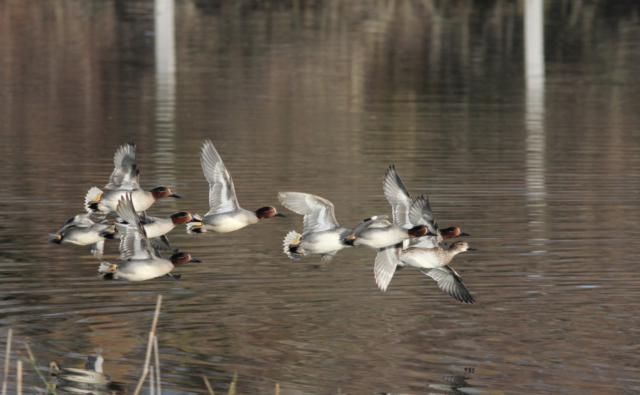
The Mediterranean Wetlands Observatory, functioning under the umbrella of Tour du Valat and the Mediterranean Wetlands Initiative MedWet, published in October 2018 the new report Mediterranean Wetlands Outlook 2: Solutions for sustainable Mediterranean wetlands (MWO-2).
The MWO-2 updates the situation for Mediterranean wetlands since 2012, the year of publication of the MWO-1, which was the first regional indicator-based assessment of the status of wetlands and the challenges that they face.
This MWO-2, through its 16 indicator factsheets, provides regional support to the findings of the Ramsar Convention’s first Global Wetland Outlook (GWO): the State of the World’s Wetlands, to be issued at the 13th Meeting of Conference of the Contracting Parties to the Convention (COP13, Dubai, 21-29 October 2018).
The MWO-2 is based on the analysis of 16 indicators related to wetland biodiversity, the ecosystem services they provide, the threats they are facing, and the actions taken by society to conserve and to sustainably manage them.
The report presents the socio-economic situation and trends in Mediterranean countries and the benefits and values of Mediterranean wetlands, and includes key messages for decision-makers.
The MWO-2 underlines the consequences for a rapidly increasing human population and its well-being of the loss of wetland benefits. At the same time, it presents the positive responses offered by wetlands to benefit future generations of people and for biodiversity.
The evidence presented in the MWO-2 demonstrates that wetlands across the Mediterranean region continue to be threatened and destroyed by unsustainable human activities.
Among the main conclusions, at the global level:
- 48% of wetlands in the Mediterranean basin have disappeared since 1970
- The population of the Mediterranean basin has increased by one-third since 1990, and by 42% in coastal areas
- The human ecological footprint in the Mediterranean basin is today almost twice as high as the world average
- 23% of the remaining wetlands are artificial (e.g., impoundment lakes, salt marshes, rice paddies), compared to 12% worldwide.
More precisely, the following conclusions can also be drawn regarding some groups of indicators:
Water
- 1/3 of the Mediterranean countries are undergoing very heavy water stress, particularly serious in the Middle East and North-East Africa (Indicator 3),
- Most rivers have experienced a very significant reduction in flow (-25 to -75%) (Indicator 3),
- Agriculture is the main contributor to the increase in water withdrawals in the Mediterranean basin with 2/3 of the total (Indicator 9)
- The flood control capacity of wetlands has decreased by 20% in some Mediterranean countries (Indicator 12).
Climate change
- 95% of the wetland sites hosting more than 50,000 waterbirds are coastal and threatened with submersion following sea level rise,
- The Iberian Peninsula, the Maghreb, the Balkans and the Near East are the regions that are likely to lose the largest number of wetland species as a result of climate change (Indicator 11).
Biodiversity
- 36% of Mediterranean wetland species are now threatened with extinction. Their decline is accelerating, their populations having been almost halved since 1990 (indicator 2),
- The abundance of mammals, amphibians, reptiles and fish has declined by about 35% since 1990 (Indicator 1).
The ongoing loss and degradation of wetlands impacts directly on human well-being and deprives future generations of the multiple benefits that they provide.
Nevertheless solutions do exist, thanks to a community of actors united for the cause of Mediterranean wetlands.
They consist in making them attractive as nature-based solutions, whose long-term benefits can be very important for social, cultural and economical welfare of the Mediterranean populations, as “climate buffers”, or regarding food production.
You can download the report (full version or factsheets and appendices only) below.
 |
 |
Contact: Thomas Galewski, Head of Mediterrannean Wetlands Observatory



